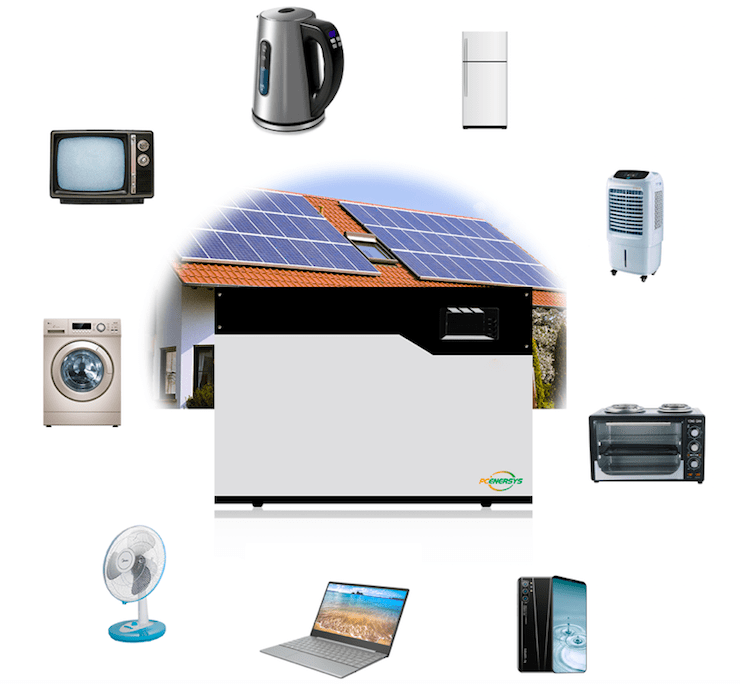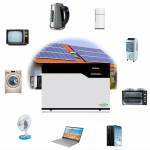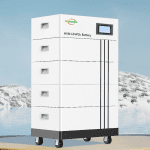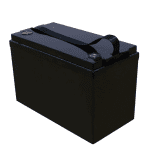Household energy storage battery
Household energy storage batteries are an essential part of the evolution of how we generate, store and use electricity at home. They’re not yet ready to compete with traditional grid power, but they’re improving in this post. I’ll explain why these devices are helpful and how they work.
Household energy storage battery:self-consumption
Solar energy can be stored in batteries or as ice. If you want to use your solar power at night or during the day, you should consider using a barrage or storing energy in the form of ice.
Batteries are one way to store solar energy. This is especially useful if you do not have access to electricity and need a way to power your appliances at home. Most people have batteries in their homes because they are accustomed to power failure or other emergencies. Everything from light to TV is applicable. Many families also have such devices because they need extra power to power devices that need continuous charging all day long, such as mobile phones. Mainly if you work outdoors as a construction worker, you often use it during the rest time between shifts!
increased on-site solar power generation
Solar panels can only generate electricity when the sun is shining. Solar systems produce very little power during low-light or overcast conditions. To help address this limitation and increase the amount of renewable energy delivered on-site. Energy storage batteries can be added to a solar system to capture excess electricity and store it until needed later.
Household energy storage battery-power outage support
If your battery is sized correctly, it can provide power during brief outages. This is particularly useful if you have a few devices that need to be kept on or are costly to replace.
If your battery is sized correctly, it can provide power during more extended outages. This is useful if you have a lot of devices that need to be kept on or are very expensive to replace.
And if your battery is sized correctly, it can provide power during an emergency where grid power may not be available soon. In this case, it has enough stored energy. Let you run lights, fans, refrigerators, and other equipment before waiting for maintenance or before the power grid is back online.
If your household has been impacted by a natural disaster such as flooding or wildfire. Having enough stored energy will allow you to run lights and fans for days without needing an external source of electricity until clean water runs through those pipes again!
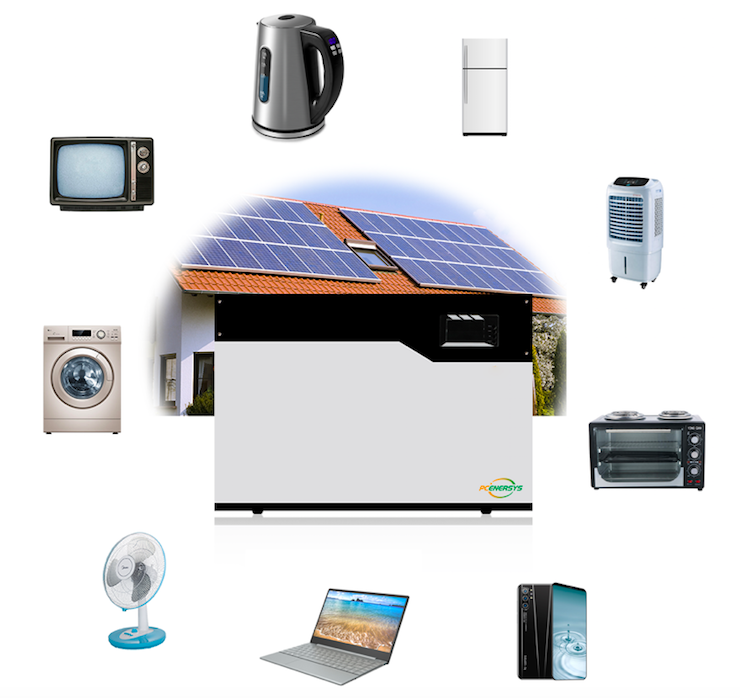
Enabling the use of self-produced solar energy at night
The ability to use solar energy at night.
The ability to store solar energy for later use.
And the ability to store and use self-produced solar energy at night.
Improved use of a home’s installed solar panels
In addition to the obvious benefits of reducing your monthly electric bill. Investing in a battery system can also enhance the usefulness of your installed rooftop solar panels. By storing the extra electricity produced during peak hours, you can use it later when the sun isn’t shining or on cloudy days. Your energy storage battery will reduce the amount of solar energy you sell to utility companies. And lessen the electricity purchased from them, which has been found to save consumers 30% of their annual electricity bills.
Management of peak demand load by homeowners
Management of peak demand load by homeowners is a way to save money on your electric bill. It is not always easy to reduce your household energy consumption. But there are some things you can do to minimize the impact of peak demand charges on your utility bill.
The first thing that most people want to know about managing their household energy storage battery is whether or not it will save them money. The answer depends on how much electricity you use and when it’s used. In other words, whether or not you have high daily consumption during peak hours.
Offsetting electric bills by purchasing less electricity from the utility grid
You are charged per kilowatt-hour (kWh) when you use electricity from the grid. The more energy you use, the higher your bill will be. On the other hand, if your battery can store electricity in the meantime. Then discharge at an expensive time, which can reduce the overall energy cost.
We often think of batteries as being used to store energy generated by solar panels or wind turbines during off-peak hours so that they can be used at peak times. However, household batteries also have advantages over traditional grid-connected storage systems for reducing peak demand charges and other time-varying expenses.
Offsetting peak demand charges: Utilities charge customers a fee for their highest usage during any given month or year. For example, if you have an electric water heater. It starts in the morning or evening when hot water is most needed. You will pay more than those who use less electricity. In addition to storing excess solar energy for future use, household batteries can also help reduce such charging. Because they can provide additional fuel to the grid during off-peak hours, and the price during off-peak hours is lower than during peak hours.
Voltage Support and Regulation to avoid grid penalties
If you’re looking to avoid grid penalties, battery storage might be the answer. The capacity of a battery system can vary significantly depending on what you need it for and how large your property is. Your home’s size and layout will determine how much energy storage capacity you need. Depending on how much power your household consumes relative to how much it produces.
Suppose you want to use as little grid power as possible and reduce or eliminate your monthly electricity bill. In that case, it may be worth investing in a large enough solar array or wind turbine so that most of your energy comes from non-grid sources. Grid penalties are only charged if there is a negative balance between net consumption and net generation over a billing period. This means if the electricity consumed in a month exceeds the power generation. Then, before the usage is lower than the production level again in the next month, the excess electricity will be charged at an increased rate. But the premise is that this situation continues to occur for many consecutive months!
Newer technologies like lithium-ion batteries can better meet those needs
Lithium-ion batteries can provide higher energy density, which means they have a more significant amount of power stored in a smaller volume. This makes them more useful for applications that require high-power loads. They also have longer lifespans than lead acid batteries and don’t deteriorate as much over time.
Lithium-ion batteries are more expensive than the alternatives, but their superior performance justifies the cost for many customers. Lithium-ion batteries are the best choice for household energy storage applications for homeowners. They hope to use solar or wind energy to power homes or businesses instead of relying on fossil fuels such as natural gas or diesel.
Last
We’re excited to see how these new battery technologies will change how we store energy at home. It is exciting to use solar power during the day and then have it available at night. And we think it will make people more comfortable installing solar systems in their homes in the first place.

